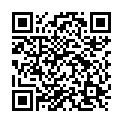|
|
|
| Module code: MTM.MES |
|
|
2V+2SU (4 hours per week) |
|
5 |
| Semester: 1 |
| Mandatory course: yes |
Language of instruction:
German |
Assessment:
Written exam 120 min.(70%) + term paper (30%)
[updated 01.10.2020]
|
MTM.MES (P231-0010, P231-0011) Mechatronics, Master, ASPO 01.04.2020
, semester 1, mandatory course
MST.MES (P231-0010, P231-0011) Mechatronics and Sensor Technology, Master, ASPO 01.04.2016
, semester 1, mandatory course
MST.MES (P231-0010, P231-0011) Mechatronics and Sensor Technology, Master, ASPO 01.10.2011
, semester 8, mandatory course
|
60 class hours (= 45 clock hours) over a 15-week period.
The total student study time is 150 hours (equivalent to 5 ECTS credits).
There are therefore 105 hours available for class preparation and follow-up work and exam preparation.
|
Recommended prerequisites (modules):
None.
|
Recommended as prerequisite for:
MTM.SIM Simulation of Mechatronic Systems
[updated 23.11.2020]
|
Module coordinator:
Prof. Dr.-Ing. Jürgen Schäfer |
Lecturer: Prof. Dr.-Ing. Jürgen Schäfer
[updated 30.01.2019]
|
Learning outcomes:
After successfully completing this course, students will be able to systematically describe, analyze and design complex mechatronic systems using system theory mthods and physical modeling. They will be familiar with the methods for handling linear and non-linear systems and be able to apply the methods to natural and mechatronic systems.
[updated 01.10.2020]
|
Module content:
- State space model (continuous-time, LTI/linear/nonlinear)
- Solving state equations in the time domain
-- Fundamental matrix
- Properties of the fundamental matrix
- Solving state equations in the frequency domain/transfer function
- Normal forms
-- Observable canonical form
-- Frobenius normal form
-- Jordan normal form
-- Similarity transformations
- Controllability and oberservability
- Discrete time systems
-- Discretization
-- Z-transform, transfer function
- State space model (discrete time)
Analysis of complex mechatronic systems e.g. from the automotive and aerospace industries, control engineering methods in mechatronics such as (exemplary),
- Driver assistance systems (ESP, ABS, ...)
- Active damping systems
- Self-sensing effects in actuator technology
- System description using Lagrange Formalism
- Artificial horizon
- Flight attitude control
- Kalman filter
- Inertial Navigation, dead reckoning, GPS support
Students will work on selected topics independently in small groups and present their findings in a workshop.
[updated 01.10.2020]
|
Recommended or required reading:
W. Roddeck, Einführung in die Mechatronik, Teubner, 2003
Schiessle (Hrsg.), Mechatronik 1 und Mechatronik 2, Vogel Fachbuch
R. Isermann, Mechatronische Systeme, Grundlagen, Springer, 1999
R. Isermann (Hrsg.), Fahrdynamik-Regelung, Vieweg, 2006
K.R. Britting, Inertial Navigations Systems Analysis, Wiley-Interscience
B. Heißing, M. Ersoy (Hrsg.), Fahrwerkhandbuch, Vieweg + Teubner, 2007
Jan Lunze, Regelungstechnik 2, Springer, 2008
Heinz Unbehauen, Regelungstechnik II, Vieweg, 2007
Otto Föllinger, Laplace-, Fourier und z-Transformation, Hüthig, 2007
Otto Föllinger, Regelungstechnik, Hüthig, 2008
[updated 01.10.2020]
|

